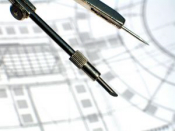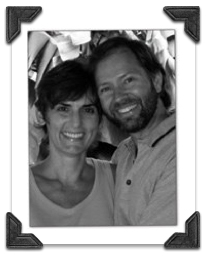Why The World Despises Know-It-Alls
 It’s been five years since we started production on the Recognized Expert Marketing Show. Almost 200 programs later, I’ve had a chance to step back and reflect upon my relationships with the marketing, sales and self-promotion experts who have appeared on the show.
It’s been five years since we started production on the Recognized Expert Marketing Show. Almost 200 programs later, I’ve had a chance to step back and reflect upon my relationships with the marketing, sales and self-promotion experts who have appeared on the show.
Most of my guests have become my friends, and I’ve grown to respect and admire them for their knowledge, their kindness and their willingness to share their expertise with my listening audience. This was true with all but one of my guests. He is someone I will never forget, and not for the right reasons.
The Recognized Expert
Once you become the recognized expert in your field you have to be careful not to fall into the know-it-all trap, and that can be difficult to do. People will treat you differently. They will say nice things about you and ask for your opinion and maybe your autograph. The media will start writing articles about you and you’ll be asked to speak at seminars and conventions. Your income will rise and you’ll find yourself in the limelight more often than not. You’re a celebrity.
Some people handle this position with dignity and grace while others take on a know-it-all posture that causes their conversation partners to recoil and strike at each opportunity.
Know-It-All
Wikipedia defines the term Know-it-all as follows:
A Know-it-all is an epithet applied to any person who exhibits the belief that he or she possesses a superior intellect and wealth of knowledge, and shows a determination to demonstrate his perceived superiority at every opportunity.
And don’t you love how the author used the word, “epithet” in the definition? If you know the definition to that word, give yourself a pat on the back. But I digress. Let’s move on.
There are three reasons we don’t like know-it-alls and they all have to do with different aspects of likeability.
First
To start, we like people who make us feel smart and we don’t like people who make us feel stupid. And yes, there are cruel people in this world who try to make others feel stupid, but that’s not the intent of most know-it-alls. These people are more concerned with trying to impress others by showing off what they know.
Problem is, in doing so they are inadvertently shutting others out by moving into a preaching mode (I speak, you listen.) This method of communication is fine in the classroom, but it’s a problem everywhere else.
Second
 The second reason we have a hard time with know-it-alls is because we like ourselves more when we enhanced the lives of others. Know-it-alls don’t give us that opportunity. They seldom allow us to share our thoughts and opinions and when we do, they either ignore us or they disagree with us.
The second reason we have a hard time with know-it-alls is because we like ourselves more when we enhanced the lives of others. Know-it-alls don’t give us that opportunity. They seldom allow us to share our thoughts and opinions and when we do, they either ignore us or they disagree with us.
Very few people want to be involved in a relationship where they can’t contribute and don’t feel appreciated when they do.
Third
The third reason we don’t like know-it-alls is because we like people who don’t take themselves too seriously, and we feel uncomfortable around people who do. Know-it-alls are seldom wrong, but when they are wrong, their brain goes into lock-down. They are so invested in being right, that they don’t know how to handle a situation where they think they look stupid. The last thing they’ll do is laugh at themselves, which is the best thing they can do to endear themselves to others.
It’s also true that we are attracted to smart people. But, like all of the laws of likeability, you can take your smarts too far. Being perceived as smart is attractive to others, being perceived as a know-it-all is not.
Oliver Wendell Holmes, Jr.
Bill Federer is the author of the American Minute, a short American historical event that he broadcasts to millions of people over the radio and on the Internet every day. Today, Bill sent me a story about Oliver Wendell Holmes, Jr.
Oliver was born on, March 8, 1841. He was a Union soldier during the Civil War and he went on to become a Harvard Law School Professor. In 1902, President Theodore Roosevelt appointed him to the U.S. Supreme Court, where he served to a more advanced age than any other justice. On his 90th birthday, Oliver Wendell Holmes, Jr., replied to a reporter by saying:
“Young man, the secret of my success is that at an early age I discovered I was not God.”
Boy, what a valuable lesson my pompous guest could have learned from Mr. Holmes.
Competing with God
If you find yourself competing with God, stop. Ask yourself what it is you really want to accomplish. Do you want to be a know-it-all and have your listeners relish in your fall, or do you want to attract people who want to associate with you because you’re an interesting conversationalist?
And, if you’re wondering which of the 200 guests made such a bad impression on me, you won’t find his interview on the Recognized Expert Marketing Show. I either accidentally lost the program or intentionally erased it with glee. Maybe I should ask him what happened to the show. I’m sure he knows.



 The point once again is … different people are attracted to different odors. So how can you use this knowledge to make yourself likeable?
The point once again is … different people are attracted to different odors. So how can you use this knowledge to make yourself likeable? I’m always amazed at the handful of people I encounter who just don’t get it. For some reason, they fully believe that being liked doesn’t matter. Worse yet, they think that being seen as a likable person (manager, teacher, parent, etc.) is a roadblock to their authority and encourages others to show disrespect! Nothing, and I mean nothing could be further from the truth.
I’m always amazed at the handful of people I encounter who just don’t get it. For some reason, they fully believe that being liked doesn’t matter. Worse yet, they think that being seen as a likable person (manager, teacher, parent, etc.) is a roadblock to their authority and encourages others to show disrespect! Nothing, and I mean nothing could be further from the truth.

 When you focus on helping people like themselves when they are in your presence, wonderful things happen. They want to work for you, hire you, buy from you, refer you to their friends, listen to you, respect your opinion, vote for you, marry you, support you, and befriend you.
When you focus on helping people like themselves when they are in your presence, wonderful things happen. They want to work for you, hire you, buy from you, refer you to their friends, listen to you, respect your opinion, vote for you, marry you, support you, and befriend you.




 The Laws of Likability get more interesting with each passing day. Up until recently, I didn’t really think about which law trumped the rest, but I’m getting closer.
The Laws of Likability get more interesting with each passing day. Up until recently, I didn’t really think about which law trumped the rest, but I’m getting closer.